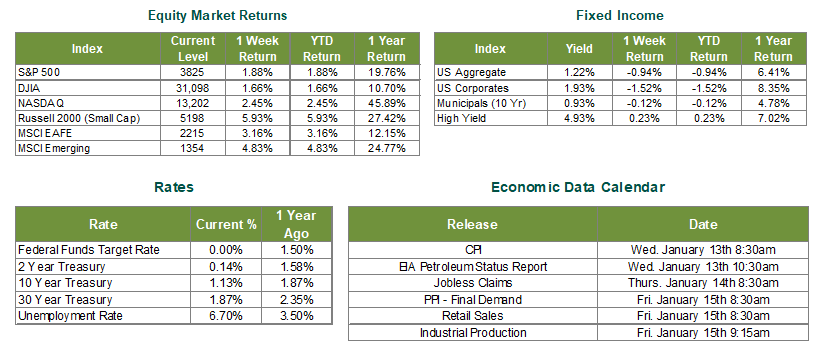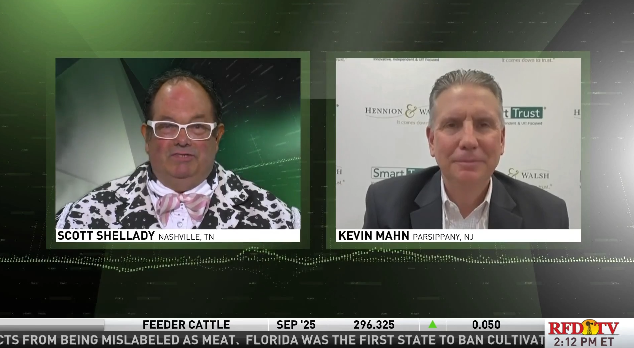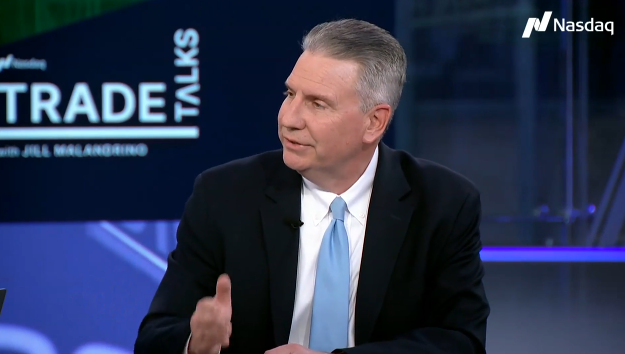
Last Week’s Markets in Review: New Year, New Opportunities

Equity markets moved higher while Treasuries declined during the first week of the new year. In the U.S., the S&P 500 Index rose to a level of 3,825, representing a gain of 1.88%, while the Russell Midcap Index moved 3.19% higher last week. Meanwhile, the Russell 2000 Index, a measure of the Nation’s smallest publicly traded firms, led the charge to gain nearly 6% over the week. International equities also fared well as developed and emerging markets returned 3.16% and 4.83%, respectively. Finally, the 10-year U.S. Treasury yield rose significantly, finishing the week at 1.13%, up 20 basis points from the week prior.
We recently flipped the calendar to a new year, however, 2021 has yet to offer a different tone than the chaotic year that was 2020. What it will offer, in our opinion, is new growth and potential income opportunities for investors to consider. We will highlight a few of those opportunities in this week’s update. However, first we will quickly review the Senate run-off elections that took place last week in Georgia. While we typically refrain from discussing political matters, we felt it appropriate to discuss the reported election results given the potential impact that they may have on the economy and, in turn, the financial markets.
The results of the aforementioned run-off would determine the balance of power in Congress and potentially have a material impact on certain policy initiatives. In the end, and after a full night of counting votes, Jon Ossoff and Raphael Warnock, both of the Democratic party, emerged victorious. So, where does that leave us now that the election results are in? For investors, what are the implications for markets and portfolios?
Following the November 2020 elections, Democrats maintained a majority in the House of Representatives, and now with the reported results out of Georgia last week, Democrats technically have control of the Senate as well. With this Senate composition, Vice President-elect Kamala Harris can act as the tie-breaker in a Senate made up of 50 Democrats and 50 Republicans if needed. This narrow majority means that Congress is no longer split, which many believed would have largely resulted in legislative gridlock and potentially have been a positive for investors based upon historical returns associated with periods when political power was split in Washington DC.
The initial market reaction to last week’s news was predominantly positive as many strategists on Wall Street contend that the election results should pave the way for more COVID-19 related stimulus and the potential passage of an infrastructure bill. Additional fiscal stimulus and the distribution of approved COVID-19 vaccines should allow the economy to continue to recover and the stock market to continue to offer growth opportunities in 2021. However, we did receive adverse news on Friday as the monthly jobs report showed U.S. nonfarm payrolls fell 140,000 in December. This marks the first decline since April and is likely correlated with the continued rise in COVID-19 cases and associated lockdown measures in certain parts of the country.
The Dow Jones Industrial Average, and the Russell 2000 Index did still reach record highs last week, continuing the trend that accelerated when the initial news of an effective vaccine came out. Interest rates also moved higher, the yield curve steepened, and the dollar declined. Sectors like information technology struggled to keep pace on the so called “reflationary trade” while value/cyclical sectors were winners for the week. In terms of potential opportunities for investors to consider in 2021, we believe that opportunities exist in a more broad set of asset categories than we’ve experienced over the past few years. Sector, style, geographic, and market cap diversification will likely play key roles in the risk/return performance of investor portfolios. For example, we believe that smaller-cap stocks may be positioned to outperform large-cap stocks and international equities may return to prominence in the New Year.
Accordingly, we continue to encourage investors to work with experienced financial professionals to help manage their portfolios through various market cycles within an appropriately diversified framework that is consistent with their investment objectives, time-frame, and risk tolerance.
Sources for data in tables: Equity Market and Fixed Income returns are from JP Morgan as of 1/8/21. Rates and Economic Calendar Data from Bloomberg as of 1/8/21. International developed markets measured by the MSCI EAFE Index, emerging markets measured by the MSCI EM Index, U.S. Large Cap defined by the S&P 500. Sector performance is measured using the GICS methodology.
Disclosures: Past performance does not guarantee future results. We have taken this information from sources that we believe to be reliable and accurate. Hennion and Walsh cannot guarantee the accuracy of said information and cannot be held liable. You cannot invest directly in an index. Diversification can help mitigate the risk and volatility in your portfolio but does not ensure a profit or guarantee against a loss.
Diversification can help mitigate the risk and volatility in your portfolio but does not ensure a profit or guarantee against loss.
Investing in commodities is not suitable for all investors. Exposure to the commodities markets may subject an investment to greater share price volatility than an investment in traditional equity or debt securities. Investments in commodities may be affected by changes in overall market movements, commodity index volatility, changes in interest rates or factors affecting a particular industry or commodity.
Products that invest in commodities may employ more complex strategies which may expose investors to additional risks.
Investing in fixed income securities involves certain risks such as market risk if sold prior to maturity and credit risk especially if investing in high yield bonds, which have lower ratings and are subject to greater volatility. All fixed income investments may be worth less than the original cost upon redemption or maturity. Bond Prices fluctuate inversely to changes in interest rates. Therefore, a general rise in interest rates can result in the decline of the value of your investment.
Definitions
MSCI- EAFE: The Morgan Stanley Capital International Europe, Australasia and Far East Index, a free float-adjusted market capitalization index that is designed to measure developed-market equity performance, excluding the United States and Canada.
MSCI-Emerging Markets: The Morgan Stanley Capital International Emerging Market Index, is a free float-adjusted market capitalization index that is designed to measure the performance of global emerging markets of about 25 emerging economies.
Russell 3000: The Russell 3000 measures the performance of the 3000 largest US companies based on total market capitalization and represents about 98% of the investible US Equity market.
ML BOFA US Corp Mstr [Merill Lynch US Corporate Master]: The Merrill Lynch Corporate Master Market Index is a statistical composite tracking the performance of the entire US corporate bond market over time.
ML Muni Master [Merill Lynch US Corporate Master]: The Merrill Lynch Municipal Bond Master Index is a broad measure of the municipal fixed income market.
Investors cannot directly purchase any index.
LIBOR, London Interbank Offered Rate, is the rate of interest at which banks offer to lend money to one another in the wholesale money markets in London.
The Dow Jones Industrial Average is an unweighted index of 30 “blue-chip” industrial U.S. stocks.
The S&P Midcap 400 Index is a capitalization-weighted index measuring the performance of the mid-range sector of the U.S. stock market and represents approximately 7% of the total market value of U.S. equities. Companies in the Index fall between S&P 500 Index and the S&P SmallCap 600 Index in size: between $1-4 billion.
DJ Equity REIT Index represents all publicly traded real estate investment trusts in the Dow Jones U.S. stock universe classified as Equity REITs according to the S&P Dow Jones Indices REIT Industry Classification Hierarchy. These companies are REITs that primarily own and operate income-producing real estate.



